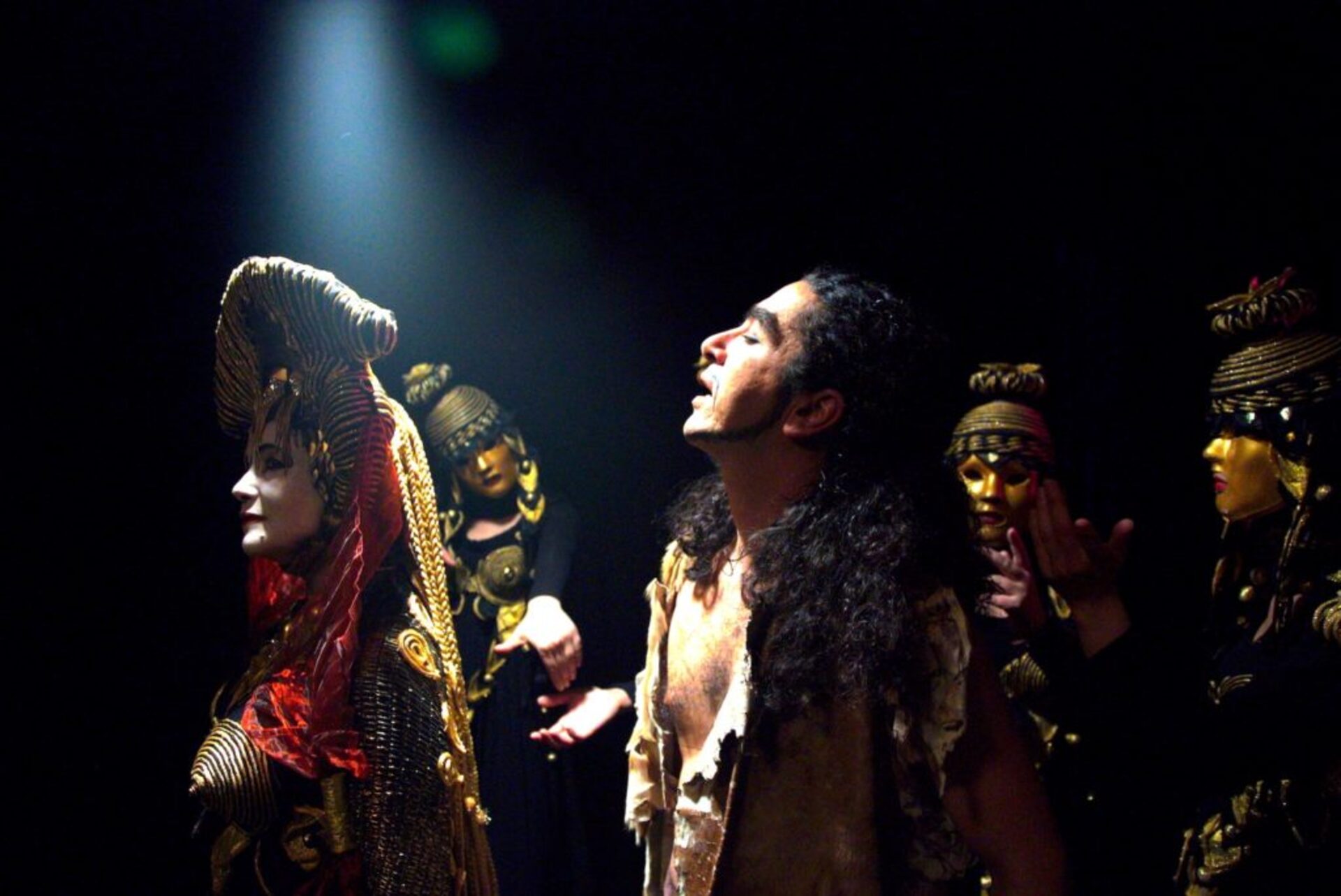The great Mesopotamian epic
Gilgamesh was the king of Uruk, a Mesopotamian city whose ruins have been found in contemporary Iraq. Allegedly, he was Noe’s grandson. The epic, which describes his adventures, is the oldest poem in history.
A lot of stories are interwoven in the narrative, a lot of which re-emerge later in the mythologies of peoples such as the Greeks and Jews.
“Gilgamesh” had survived in the oral tradition of Caucasian peoples throught centuries, namely in the reciting of the “ashoks” bards. In the late 19th century, while carrying out excavations in ancient Babylon, archaeologists discovered, unexpectedly, the first cuneiform clay tablets with the same original text inscribed on them as that of the bardic tradition. The authenticity of the text was confirmed through tablets that were found in a lot of places in the Middle East. Nowadays, three different versions of the epic have been restored: the Babylonian, the Sumerian and the Assyrian versions.
Gilgamesh is the archetype of male power and beauty. Being irresistible and unequaled in his city, he ends up oppressing his subjects. All these changes when he meets Enkidu who, from a rival turns out to be his intimate friend.
They set out on an adventurous journey but they insult Ishtar, the goddess of love and sexuality. As a punishment, Enkidu dies. Devastated by his friend’s death and driven by the inevitability of his own end, Gilgamesh sets out on a frightful journey to the Underworld in search of immortality. Through his wanderings he gains the knowledge and wisdom that will release him from the fear of death.
In the version of RODA, the poem has been adapted theatrically and translated by Dimitris and Maria Peretzi. It was staged in three different periods: in 1996 in Athens (Theater “Katia Dandoulaki”) and Thessaloniki, in 2000 within the framework of the International Festival of Petra, and in 2011 with a totally new casting and directorial approach.
“Gilgamesh” attracted the interest of CNN. It is a breathtaking story full of sensuality and beauty, a theatrical super spectacle with 30 actors/actresses, live music and dance. Furthermore, Dimitris Gasparatos was awarded the “2014 Karolos Koun Prize” for his dynamic performance as Gilgamesh.
Text editing-theatrical adaptation: Dimitri Peretzi/ Maria Peretzi


